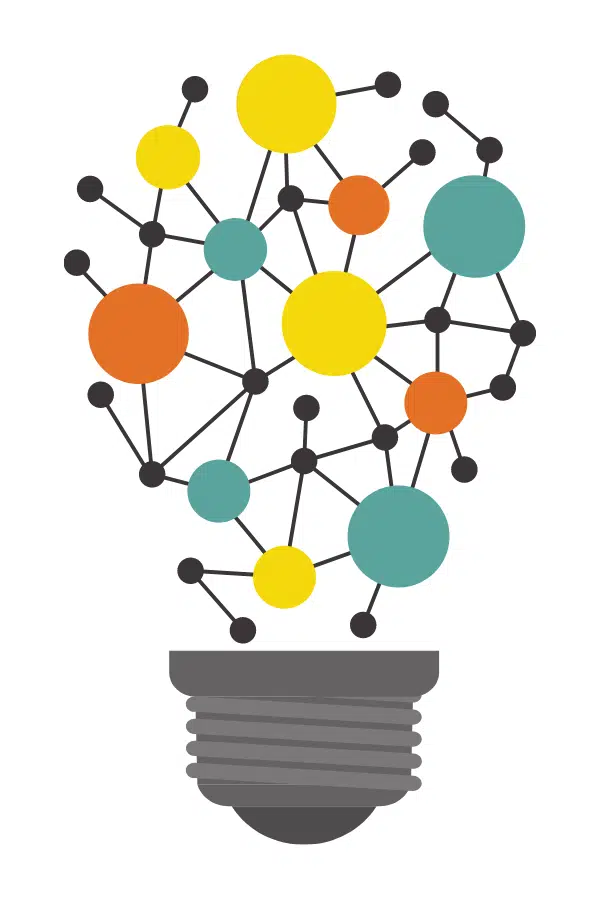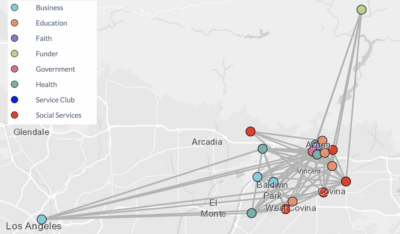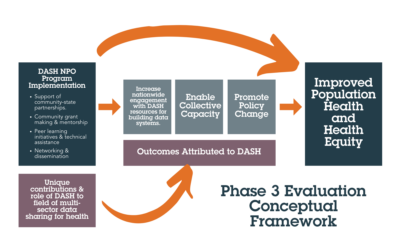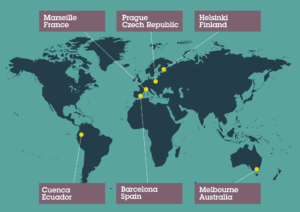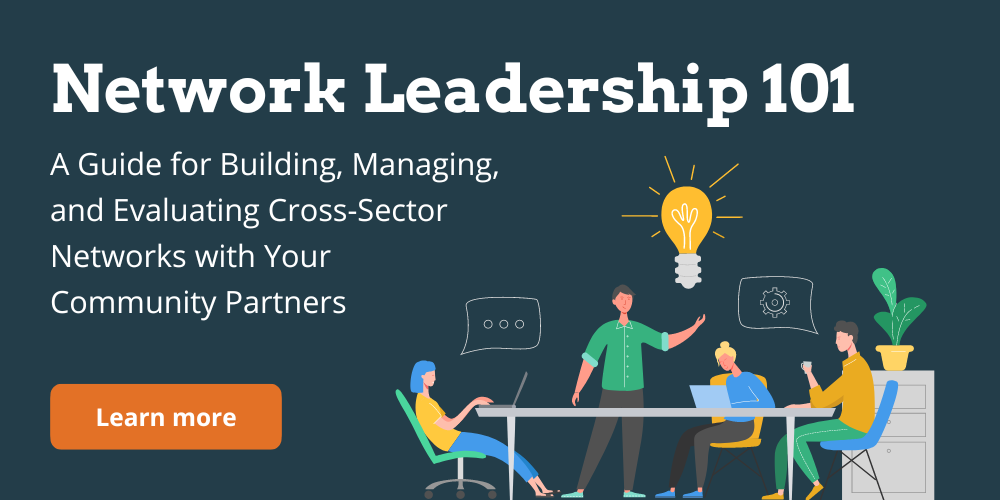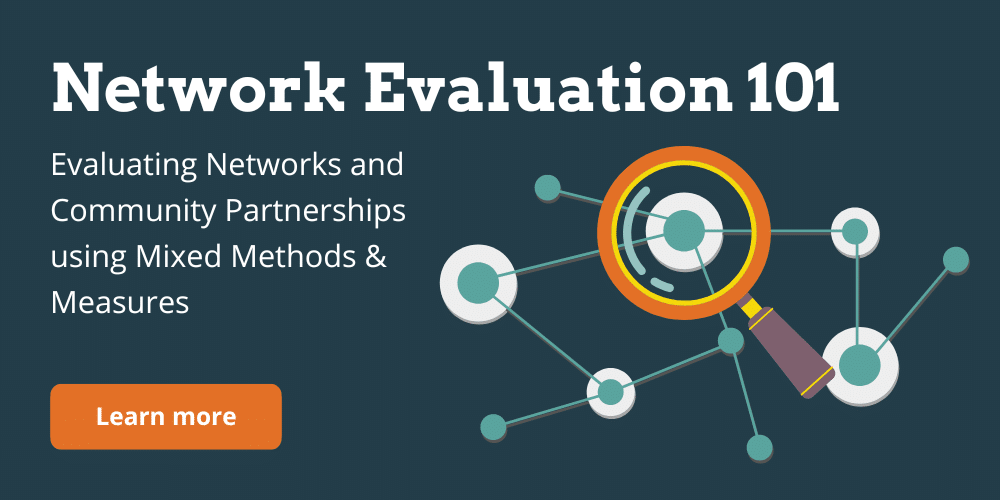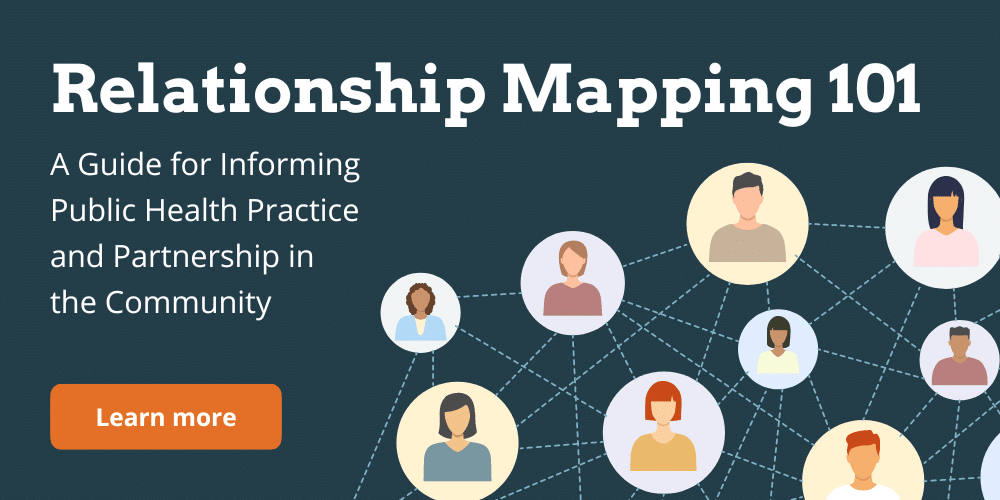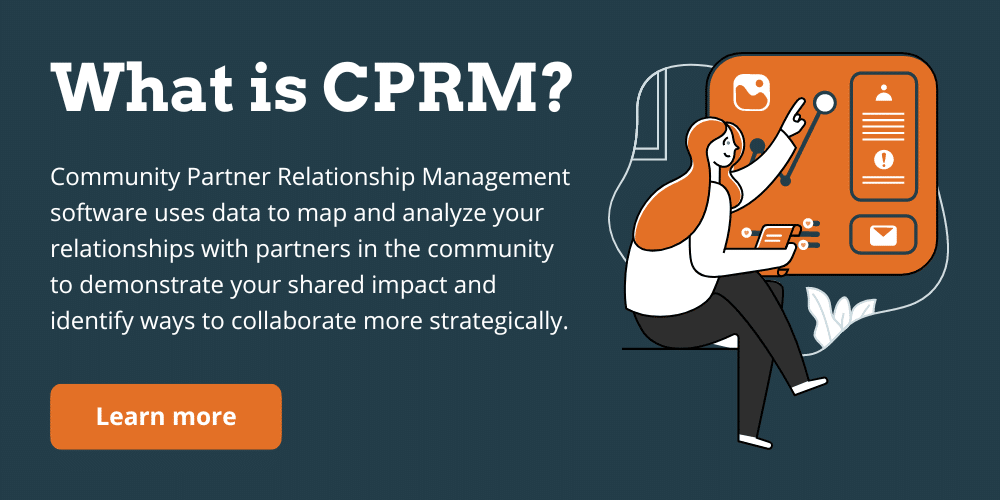Our Recent Work with Population and Community Health Ecosystems
Working alongside organizations who are focused creating change in population and community health, we’ve mapped, measured, and analyzed, acted as collaborators and thought partners, and have continuously brought trusted information and data that help them better understand their ecosystems. By bringing disparate partners and sources of information together, our work assists leaders to make informed decisions about their communities, and how to best serve them.
Below, we highlight some recent projects where we’ve worked with health departments, governments, and organizations bringing innovations to population and community health not just in the United States, but across the globe.
Table of Contents
Public Health National Center for Innovations (PHNCI) at the Public Health Acceditation Board (PHAB)
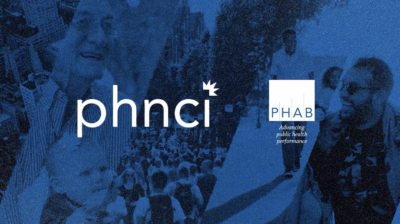
PHNCI is home to the 21st Century (21C) Learning Community, a group of states “focused on intentional state-wide public health system transformation.” Through its work, 21C has helped PHNCI gain insights and build relationships to support governmental health departments in constructing more equitable public health systems, more robust infrastructure that is purpose built to better serve all communities, and acquire sustainable funding that furthers the system long term.
Visible Network Labs (VNL), along with PHNCI, and 21C have partnered with the Indiana Department of Health, the Washington State Association of Local Public Health Officials (WSALPHO), and Association of Ohio Health Commissioners in partnership with the Ohio Department of Health to analyze the ecosystem of organizations who are dedicated to improving public health data modernization and transformation in Indiana, Washington, Ohio, and nationwide. VNL’s Data Science team worked to provide a customized assessment that:
- Visualize the network’s relationships;
- Highlights the strengths and gaps of programs and services in the network;
- Identifies opportunities for continued network development;
- Demonstrates the impact of PHNCI, 21C, and IDOH’s collective efforts to funders, local policymakers, and their diverse group of stakeholders – helping influence policy development, while communicating their progress.
After launching in the beginning of March 2023, 236 organizations responded throughout Indiana, Washington, and Ohio, and those organizations reported a total of 2724 local and national partnerships. VNL’s work in this project is currently underway, and we’re excited to share more as it moves forward.
City of Azusa (All in for AZUSA)
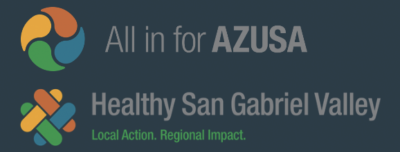
AIFA’s vision of a healthy, equitable, safe and resilient Azusa community centered around integrating programs and services that improve whole-person care, address health and social inequities, and cultivate impactful cross-sector collaborations while working to reduce multiple forms of violence in the Azusa community. The goal of VNL’s work with AIFA and HSGV was to visualize their ecosystem and its relationships, provide insights about the work preformed through the partnership, identify opportunities for continued ecosystem development, and demonstrate the impact of their collective efforts to funders and stakeholders.
Throughout the project, 24 organizations across eight distinct groups that engage in the AIFA – HSGV network were invited to participate in the PARTNER survey. All 24 organizations responded, for a 100% response rate. Key players were identified, and respondent organizations reported 148 partnerships throughout the network.
Network members appeared to overwhelmingly embrace many elements of the collaborative model that AIFA and HSGV uses, with at least 85% of respondents embracing every element by either “a great deal” or “a fair amount.” Respondents also indicated that both AIFA and HSGV were either very (“a great deal”) or fairly (“a fair amount”) important in the formation and maintenance of at least 64% relationships in the network.
VNL & The Robert Wood Johnson Foundation

Data Across Sectors for Health (DASH)
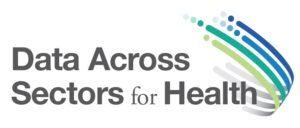
DASH is a national initiative that provides funding, resources, and tools to help organizations in the public health, social services, and health care sectors share data. In Phase Three, DASH continued its direct support for community data and information systems through funding and monitoring, and led the All In national learning network. DASH also pursued farther-reaching systems and policy changes to create the conditions for communities and states to build such data and information systems that improve health and health equity.
VNL conducted a developmental evaluation of DASH’s Phase Three programming, including the implementation of community-state policy partnerships, community grant-making and mentorship, peer learning initiatives and technical assistance, and networking and dissemination initiatives. The developmental evaluation aimed to understand if the following outcomes could be attributed to DASH’s unique contributions to, and its role in, the field of multi-sector data sharing for health:
- Increasing nationwide engagement in building health data-sharing systems;
- Enabling collective capacity build these systems; and
- Promoting policy changes that support these systems.
VNL, RWJF, and the DASH NPO also explored the overall impact of DASH on population health outcomes – specifically how communities, stakeholders, and end users link DASH’s implementation of the above activities, and their subsequent achievements, to improved outcomes in population health and health equity.
Applying a developmental evaluation approach, VNL collected data from multiple external stakeholders within the ecosystem while simultaneously sharing the data with the DASH NPO and RWJF teams, helping to facilitate immediate learning and feedback about the data for continuous quality improvement. Deliverables prepared included a report and presentation, summarizing the results of each evaluation task immediately after its completion. VNL employed design thinking at each stage of the evaluation process to establish an experimentation/learning mindset, obtain feedback and make course corrections, ensuring the final product met the needs of the DASH NPO, RWJF, the ecosystems they operate, and the communities they serve.
Systems thinking was utilized to answer evaluation questions from multiple levels and perspectives, to capture diverse components of the ecosystem. VNL built learning and communication relationships with the DASH NPO and RWJF teams, and continuously inquired about whose voices needed to be heard throughout the evaluation to achieve a systemic and comprehensive understanding of DASH Phase Three programming.
County Health Rankings & Roadmaps

During its 2021-2023 grant period, CHR&R has redesigned its theory of change, focusing on the creation, dissemination, and adoption of assets to promote deep health equity (DHE) and social solidarity (SS) in communities across the United States. VNL, along with several evaluation partners, are conducting an evaluation of progress and outcomes corresponding to this new theory of change. Specifically, VNL is using its design thinking approach to collect network data to track the dissemination and adoption of CHR&R products and services, and to understand the effectiveness of the revised approach.
"VNL and their PARTNER network data have been critical components to support County Health Rankings & Roadmaps in analyzing existing networks around the country. VNL provided important training on network science concepts, network mapping and analysis, and SDoH resource allocation within networks. We were able to align health rankings data with VNL’s analysis of inter-organizational relationships and partnerships to identify gaps for targeted outreach."
Justin Rivas - Former Network Strategist, CHR&R Tweet
Glasser/Schoenbaum Human Services Center

- Measure the impact of the COVID-19 pandemic on the carrying capacity of public health, social services, and health care sectors;
- Compare networks already in place prior to the pandemic;
- Measure how effectively linkages across social, health care, and public health services were aligned to impact client/patient outcomes;
- And identify what improvements could be made and what lessons were learned.
ReThink Health

In this project, stewards had expressed interest in developing an equity orientation in regard to purpose, power, and wealth. ReThink Health works with stewards who are positioned to influence how regional decisions are made, and how resources are spent.
Through this work, ReThink Health partnered with VNL with the aim of identifying the essential practices stewards should commit to, and develop, in order to create a new, more equitable ecosystem for health and well-being in their regions.
VNL worked with ReThink Health to conduct a third evaluation of their Hospital Systems in Transition (HST) and Portfolio Design for Healthier Regions (PDHR) projects. VNL performed an ecosystem analysis, providing information for ReThink Health to further understand and explore the HST and PDHR networks evolution through stewardship, shifting mindsets, and action. VNL’s collaboration also included developing full PARTNER surveys and conducting analyses and reporting for the HST and PDHR projects, sharing insights for ReThink Health’s overarching analytic framework for their Time 3 evaluation.
"We find that while organizations want to bring in more people and understand the need to work together, they often don't know how to do it well, or do it in name only. PARTNER helped us go deep and understand the decision making processes and governance structures, all the constraints they face so they could be more intentionally interdependent and improve their collaborative outcomes."
Anna Creegan - Project Director, Rippel Foundation Tweet
Re-imagining Environments for Connection and Engagement: Testing Actions for Social Prescribing in Natural Spaces (RECETAS)
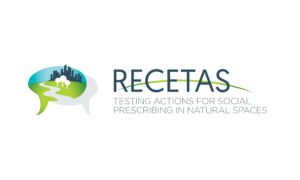
Visible Network Labs is the exclusive United States-based partner to be included in the RECETAS project. Members of our Data Science team utilized our PARTNER tool to perform ecosystem analyses at each of the six project sites, gaining clarity on the relationships and strengths of organizational ecosystems in each city. The team also used PARTNER to determine if, or how, organizations in each of the six cities are using nature-based social prescribing to improve quality of life and address mental health, well-being and loneliness amongst their residents.
VNL utilized its PARTNER tool and its Data Science team’s expertise in creating a survey that maps the ecosystems of organizations in each city that are involved in spaces where nature-based social prescribing might be employed. VNL’s’ Kaley Bachinski managed and supported organizations in each city as they created their bounded list, helping to clarify which types of stakeholders should be involved in the network analysis survey, and how broad or narrow of a net to cast within the city.
Leaders and managers from sectors throughout the project, known as Work Package Leaders, then came together to review and give feedback on the surveys, ensuring that surveys from each city were largely the same. The team took care in verifying that cultural contexts and language differences correspond correctly in each city. The survey was translated into: English, (Helsinki – who’s team decided a translation was not necessary, and Melbourne), French (Marseille), Czech (Prague), Catalan (Barcelona), and Spanish (Cuenca and Barcelona). Kaley Bachinski served as Visible Network Labs’ Work Package Leader throughout the project.
Each of the organizations involved within the cities designated a representative to answer a survey that included the following questions:
- Please briefly describe in your own words the work that your organization does to address mental health, well-being, or loneliness.
- Which of the following solutions in nature, natural spaces, or activities in natural space does your organization use to address mental health, well-being, and loneliness, if any?
- To what extent have nature-based solutions to address mental health, well-being, or loneliness been adopted by people in your city?
The following question is an example of relational questions posed on the survey. Relational questions provide data to help the team analyze and map the organizational network in each city.
- Below is a list of organizations that the RECETAS project team has identified as working on solutions in social prescribing, nature, natural spaces, and activities in natural spaces to address mental health, well-being, or loneliness in your city. – From this list, please select everyone with whom you have an established working relationship around addressing mental health, well-being, and loneliness.
The time period detailed throughout this case study constitutes Work Package Two, in which VNL was involved. Work Packages within the project are similar to a Scope of Work agreement. The responses and data garnered in Work Package Two from the use of PARTNER and analyzed by the Data Science team will assist future Work Packages (of which there are several) in the project on how to engage with stakeholders and inform upcoming clinical trials. VNL is proud to be a partner in RECETAS – an international, innovative, and forward-thinking project.
Working Towards a More Visible Future
We’re dedicated to being a trusted and versatile partner to forward-thinking organizations – helping them better envision their ecosystems to align sectors, engage their communities, and bolster the health of the populations and communities they serve. To find out more on how our team can assist your organization and make your ecosystem more visible, click here to schedule a demo.
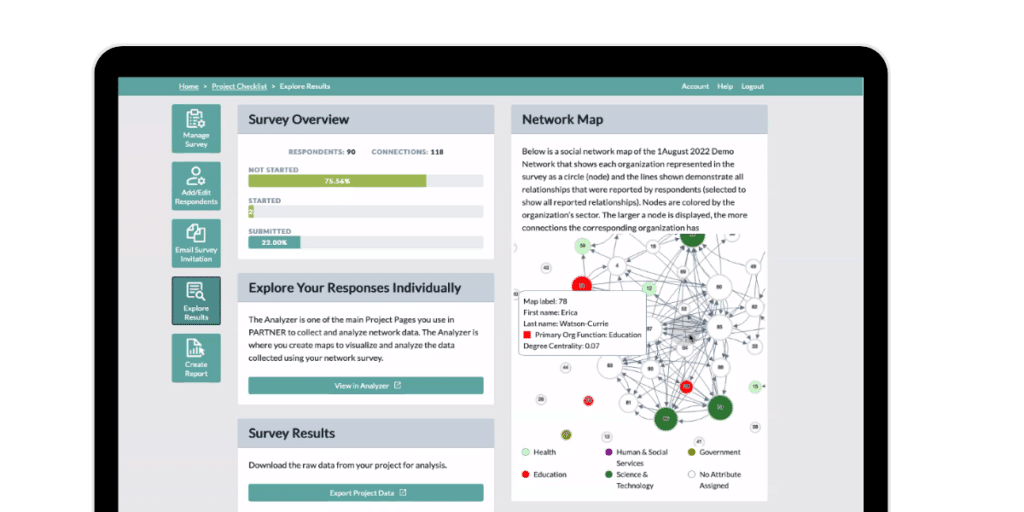
Build, manage, and track public health ecosystems with PARTNER CPRM
PARTNER is an all-in-one platform for community partner relationship management built for public and community health improvement. See what network data can do for your collaboration in a free demo.
Connect with our Team!
Contact the VNL team to demo PARTNER™ or discuss a research or evaluation project. We can help you learn more about our services, help brainstorm project designs, and provide a custom scope based on your budget and needs. We look forward to connecting!
Email our team: hello@visiblenetworklabs.com
Send a message: Contact Us Here
